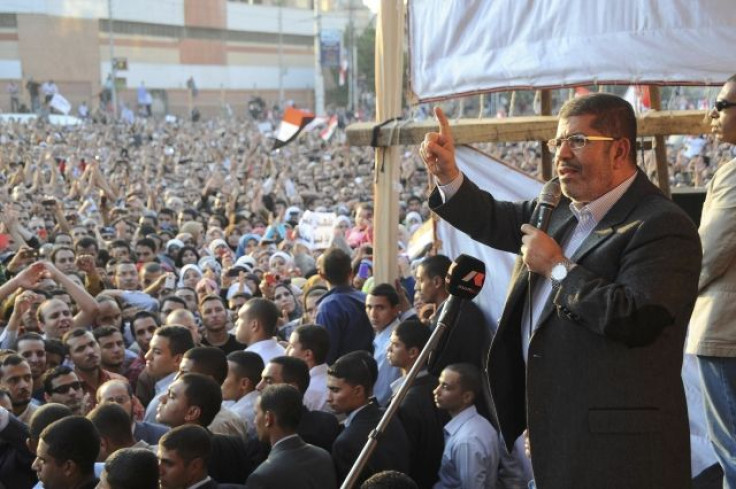Egypt's Falling Currency Will 'Stabilize Within Days,' Says Morsi

The Egyptian pound continues to freefall, reaching a new low on Monday of 6.30 to the U.S. dollar. Last Friday the pound stood at 6.17 to the dollar.
But Egyptian President Mohammed Morsi said he was unfazed, and told the MENA state news agency on Sunday that the currency will "balance out within days," Al-Arabiya translated.
The pound dropped after a bank action of foreign currency on Sunday, designed to conserve Egypt's foreign currency reserve, which are almost exhausted and will most likely be depleted within three months, Al-Arabiya said. Almost $75 million were sold to the national banks, with a cut-off price of 6.2425 pounds for every U.S. dollar.
On Saturday, Finance Minister Momtaz al-Said told the independent daily Al-Masry Al-Youm there would be changes to the taxation code, including increased taxes on income, sales, duty, real estate, and certain commodities, including steel and cement. The changes will take place after the new year. Al-Said insisted that the increased taxes would only affect the rich, and are being enacted in an attempt to "plug Egypt's funding gap," currently about U.S. $14.5 billion short.
The minister of planning and international cooperation, Ashraf El-Arabi, warned MENA that the budget deficit could shoot up to more than U.S. $31 billion by the end of the 2012/2013 fiscal year, but that foreign aid would hopefully help stem Egypt's bleeding economy.
"Once we receive all foreign aid packages from international donors including the IMF, Turkey and Saudi Arabia, we expect our reserve levels to shoot up from $15 billion to almost $19 billion, ending the current state of anxiousness regarding our foreign reserves," El-Arabi told reporters on Monday.
El-Arabi also stressed that the economy's largest and most battered tent-pole, tourism, was facing further downturn, and that Egypt would be hosting a tourism promotion conference in January to attempt to prop it up.
Before the Arab Spring began, tourism made up ten percent of the Egyptian economy.
In a bit of good news, the state news agency Al-Ahram reported that the Egyptian Exchange, equivalent to the New York Stock Exchange, was up 50.8 percent from the close of 2011.
© Copyright IBTimes 2024. All rights reserved.












